The Very Best Game Design Books
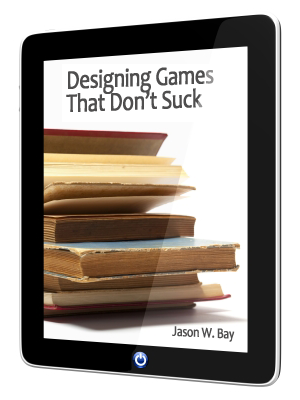
It’s easy to dream up an idea for a new game. Nearly everyone seems to have at least one great game design they’d love to bring into the world, given the chance.
But game design isn’t a single skill set. To become a good game designer, you’ll need to build a variety of skills such as cinematic storytelling, interaction design, level design, game engines, and more. Not to mention, learning all about the business of the video game industry.
That’s why I asked some of today’s top game designers for their must-read books for learning game design. Jenova Chen (Journey, Flower), Hal Milton (Marvel: Avengers Alliance) and Kelly Toyama (Assassin’s Creed: Bloodlines) are industry titans, and you’ll find their all-time best books for learning game design below. At first, some may not seem to be about game design at all. That’s because the game design skill set is bigger than just learning game engines. Trust the experts: dig in and find out why.
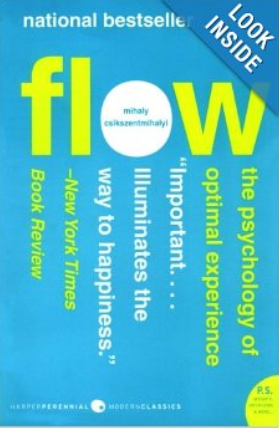
Flow: The Psychology of Optimal Experience
by Mihaly Csikszentmihalyi
Jenova Chen: “Positive psychology is the science behind happiness engagement. It helped me tremendously in understanding how to design better games for a wide audience.”
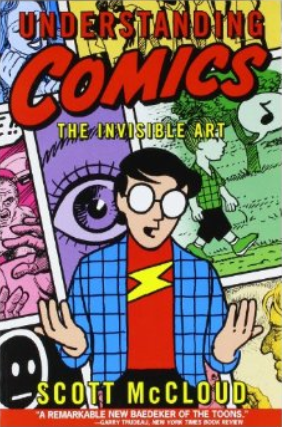
Understanding Comics: The Invisible Art
by Scott McCloud
Hal Milton: “This is a must read. Through his deconstruction of comics, you not only learn a lot about graphic design, but also information design and how the two interact. Information design is the foundation of the user interface/experience. This valuable insight is coupled with Scott’s ability to deconstruct – in other words, what are the component parts of your fun idea and how will it be experienced by and interacted with by the player?”
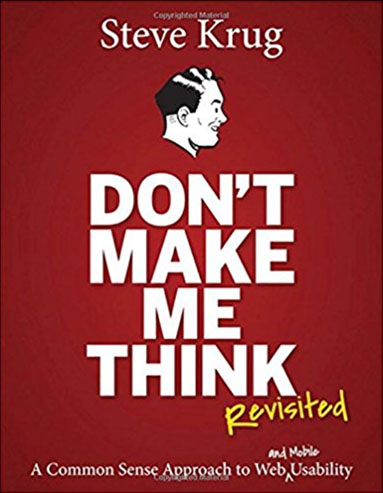
Don’t Make Me Think: A Common Sense Approach to Web Usability
by Steve Krug
Kelly Toyama: “This is a Web usability book, but no matter how good your game or design is, it can easily be killed by UI/UX problems. Knowing and understanding how people flow though the experience of your design is important weather you are making games or websites.”
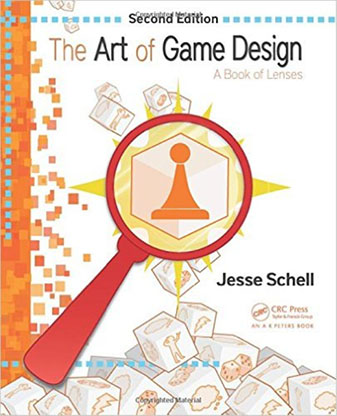
The Art of Game Design: A Book of Lenses
by Jesse Schell
Jason W. Bay: “This critically-acclaimed book is a must-have tool for every serious game designer. It’s a great learning resource, but also a reference you’ll keep going back to throughout your career.”
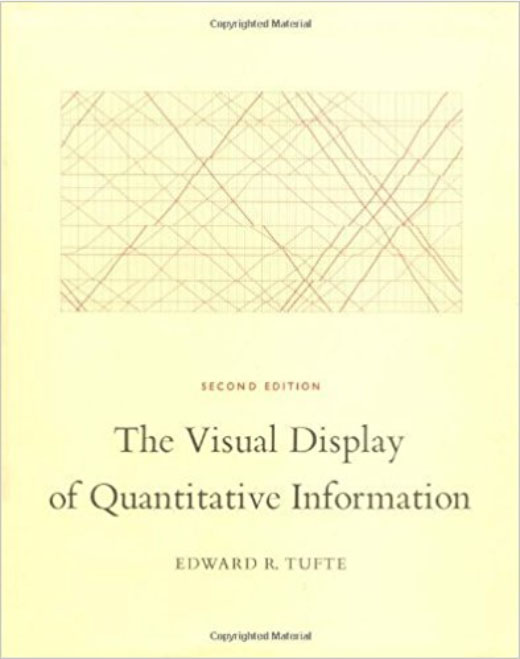
The Visual Display of Quantitative Information
by Edward Tufte
Hal Milton: “Edward Tufte has been out making a particularly lucrative career evangelizing his beliefs regarding effective information design for decades. He’s a great lecturer and has an eye for vivid examples of good and bad design. Many folks may find some of the text at points to be ponderous, academic folderol – but there are more than enough pretty pictures worth sifting through and understanding.”
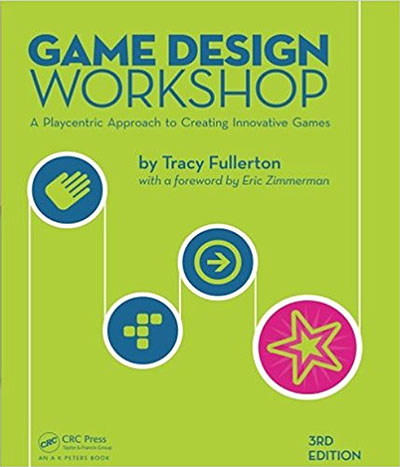
Game Design Workshop: A Playcentric Approach to Creating Innovative Games
by Tracy Fullerton
Jenova Chen: “This book is by my mentor Tracy Fullerton which I used in my study at the University of Southern California. And it’s been updated just recently!”
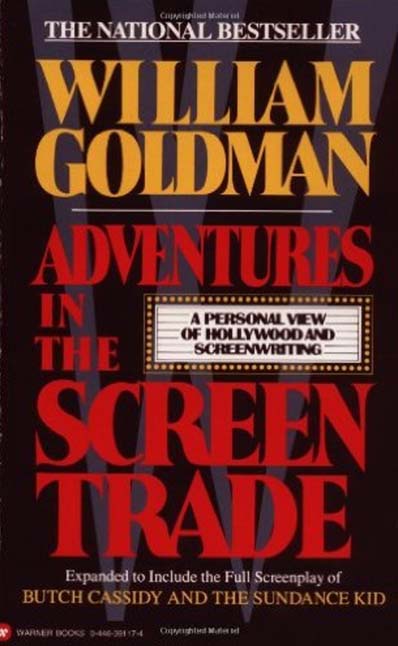
Adventures in the Screen Trade: A Personal View of Hollywood and Screenwriting
by William Goldman
Hal Milton: “This is a snapshot of Hollywood from the 1970s and early 1980s based on the experiences of screenwriter William Goldman (Princess Bride, Marathon Man). You’ll also get, for my money, some of the best written screenwriting advice ever put on the page: Plotting, story structure, how to define and manage the stakes for your characters and audience – just great stuff. That those nuggets are nested within a great historical read about film making in Hollywood is just a bonus.”
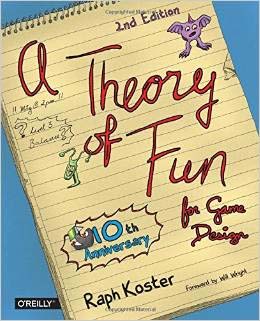
A Theory of Fun for Game Design
by Raph Koster
Kelly Toyama: “This is a super quick read – I think it can be read from cover to cover in an hour. It’s a good theory book in that it stays light and asks more questions than pushing answers. It’s thought provoking and a good add to any designer’s bookshelf.”
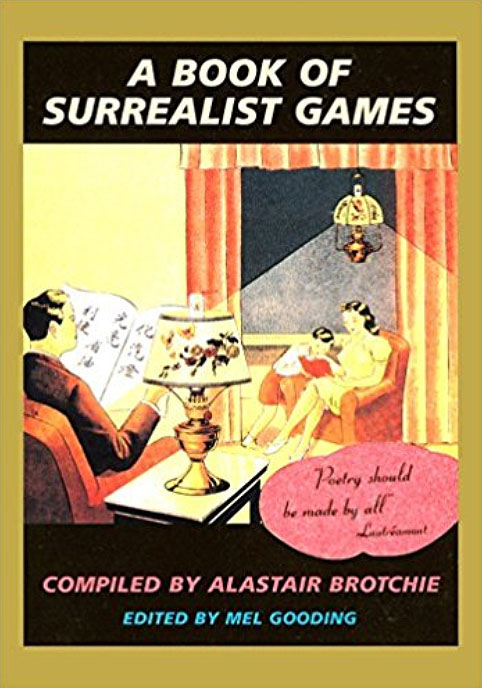
A Book of Surrealist Games
by Alastair Brotchie and Mel Gooding
Hal Milton: “This is a collection of games and exercises that were used to potentially spark a creative insight – or just enhance some substance-fueled wacky times. Old favorites like ‘The Exquisite Corpse’ and others are covered.”
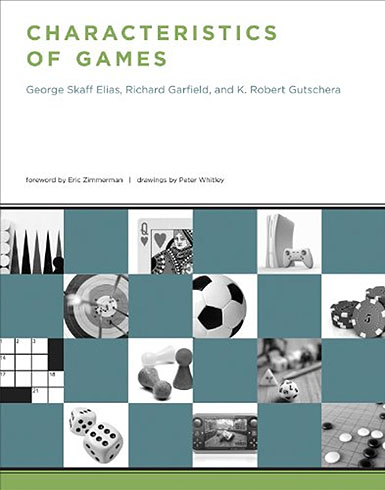
Characteristics of Games
by George Skaff Elias
Kelly Toyama: “A lot of game design books get lost under theory. Trying so hard to define the discipline in the terms of higher learning that they spend most of their pages defining terms, arguing about what a game is, or other sort of high-brow thinking. While those discussions are interesting they don’t make me feel like a better designer. They don’t teach anything. Characteristics of Games is not like that. They really quickly get to the meat of the problem and focus on creating interesting questions and useful categorization. I highly recommend this book – best game design book I’ve ever read.”
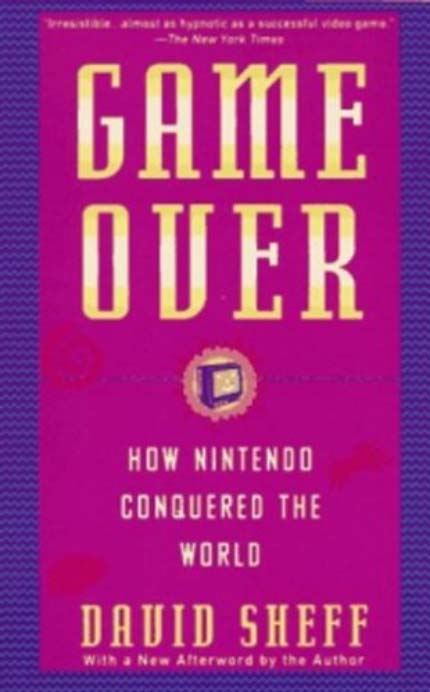
Game Over: How Nintendo Conquered the World
by David Sheff
Hal Milton: “Knowing how the industry itself works is as valuable as knowing how to create. This was the first book I read that pulled the curtain back a bit. Nowadays, there are countless resources online and offline that you can hook into. David Sheff’s book provides a wonderful look at the console industry of the 1980s and 1990s from Nintendo’s perspective.”
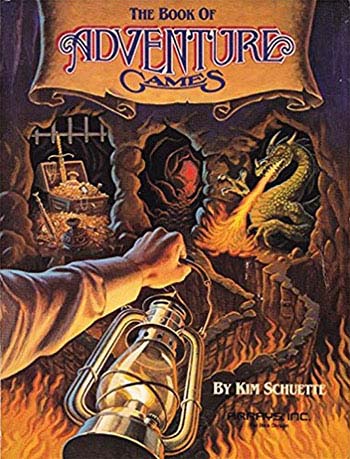
The Book of Adventure Games
by Kim Schuette
Hal Milton: “This 1984 book can be found used and is just a guide to all of the text and graphical adventure games from the time. This book has maps and walkthroughs of titles that are the bedrock of interactive fiction. Seeing how these creators crafted these small titles and managed to tell such big stories was incredibly useful for me and I believe still a relevant artifact for modern game designers to have on hand.”
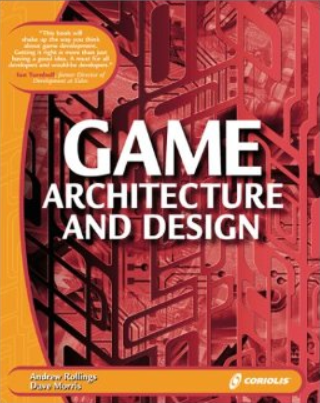
Game Architecture and Design: Learn the Best Practices for Game Design and Programming
by Andrew Rollings
Kelly Toyama: “A very practical book. It does not spend a lot of time on theory but gets directly into the guts of making games. The front half is more relevant for design, where the back half is more about team dynamics and architecture concerns. A good read for anyone wanting to get into making video games.”
Thanks to Jenova (thatgamecompany.com), Hal (www.linkedin.com/in/halmilton) and Kelly (www.titanstactics.com) for sharing their favorite game design books.
Read my new book!
Making games for a living is an incredibly rewarding career, but it’s hard to break in unless you have insider knowledge. This book levels the playing field.


This is a great list of books, I like the he Psychology of Optimal Experience recommendation!
I know it isn’t strictly game design but the ‘The Art of Game Design‘ by Schell is nothing short of great, it has helped me loads with traditional my arts.
For any aspiring game designer or gamer trying to get a job within the game industry I highly recommend Joshua Brown’s ‘How to Become a Game Designer‘.
Thanks for the additional recommendations, James. I agree that The Art of Game Design is a great read – I’ll check out How to Become a Game Designer when I get a chance. Thanks again!
Which book would you recommend for an aspiring game designer, who currently has no knowledge or study in game design. And who wants to prepare himself for a course in game design?
Hi Rohit. That’s a super hard question! There are so many aspects to game design that you should start learning about.
But if I had to pick just one, and assuming that you’ve played enough games to have a good feel for many of the basic principles, I think that Characteristics of Games would be a good one to start with. As you read it, I think you’ll have many “a-ha” moments – you’ll be able to think back to games you’ve played and better understand why they did what they did with the design.
Have fun! It’s a great book.
Hello Sir, Thanx for the information. I am a hardcore gamer and I play lots of Games. And I am a 3D modeler by profession.
I like this list, thank you for compiling this. A few of those were ones we were recommended while I was pursuing my degree in Game Design (I’ve since graduated).
A book I’d recommend is “The Design of Everyday Things” by Don Norman.
Cheers!
Hi Kyru, I absolutely LOVE “The Design of Everyday Things,” and I think it applies really well to game design. In fact, I wrote an article about it for Gamasutra back in 2009, called Designing Games That Don’t Suck!